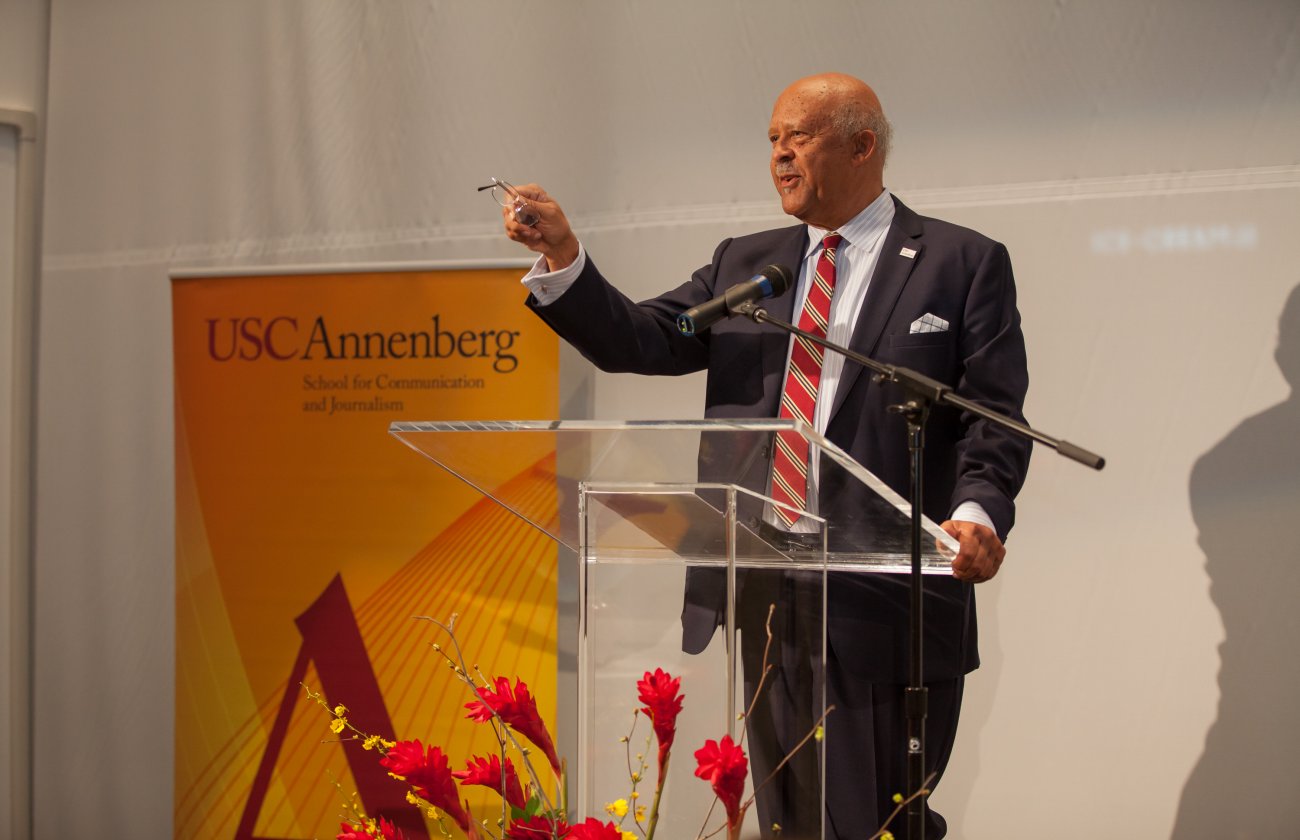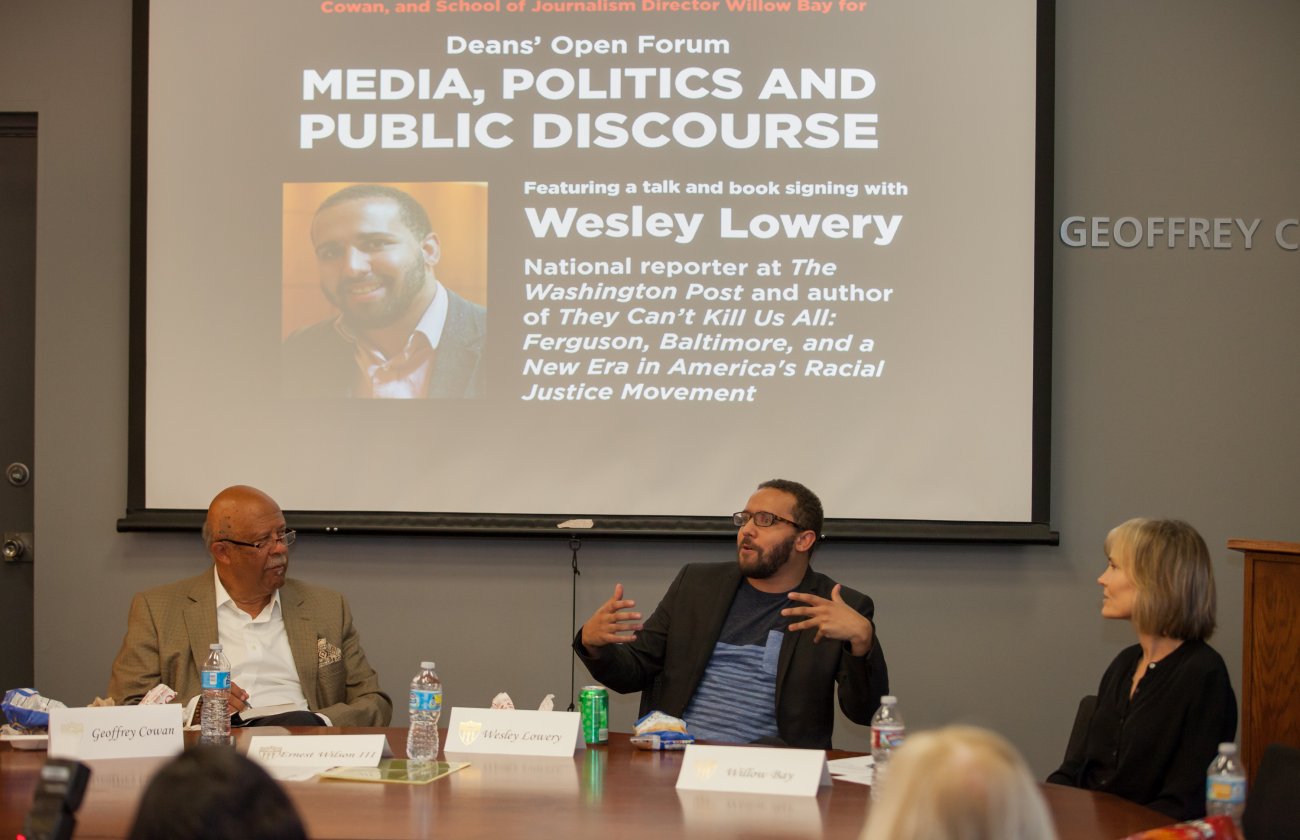Under the leadership of Dean Ernest J. Wilson III, USC Annenberg has responded to the emergence of China as a global power by conducting fastidious research on communication issues that the country must now face. With recent faculty additions who specialize in China, new research on China’s communication industry will provide insight on the pressing issues the country must tackle.
“As a school of Communication and Journalism, we recognize that the world is moving from an industrial model to a model where communication is at the center,” Wilson said. “It is at the center globally, and with the partners we work with around the world. In response to growing interest in the work that we do — teaching, research and service — USC Annenberg is able to share its own knowledge and experiences with those in China and equally important to learn from them.”
Prior to the recent USC Global Conference in Shanghai, USC Annenberg faculty traveled to Beijing, China to host an executive education seminar for senior government officials. It was the third seminar that the school has conducted in partnership with the China Development Research Foundation.
At the “Communication at the Center Executive Education Seminar,” USC Annenberg faculty gave lectures to a room of senior government leaders. Rooted in the belief that an organization can best accomplish strategic goals by putting communication at the center, the faculty covered strategic, narrative and crisis communication.
One of the faculty members who spoke at the seminar was professor Tom Hollihan. His lectures addressed the importance of developing narratives that account for people’s existing beliefs and experiences and the role of social media in mobilizing citizen activism.
“My hope is that exposure to this material will help Chinese political leaders understand that transparency and honesty in shaping their messages are essential if they are to create a climate of trust and effective governance,” Hollihan said.
Along with professors Jay Wang and Patricia Riley, a wealth of knowledge and research was shared at the seminar. Rebecca Weintraub, the seminar’s program director, said that she believes more communication creates a chain reaction of more opportunities, ideas and understanding.
“Globalization has become a buzzword, but that is because it is true,” Weintraub said. “Across geographic boundaries and oceans people and organizations are engaged in myriad ways instantly. Information flows. Ideas are shared. Sometimes the result isn't the progress we hoped for, but often a hopeful future is created that could never have been envisioned before.”
USC Annenberg’s commitment to understanding China is evident in the number of China-oriented faculty the school has hired in recent years.
Professor Yu Hong, who is a new addition to the school’s faculty, specializes in research on China’s media and communication industries. She said that these sectors are primary sites where China and the U.S. will strike economic ties.
“Top-tier Chinese media corporations are investing money in transnational production projects in order to learn from the Global Hollywood system and to build China-based global media giants,” Hong said. “USC Annenberg's new connection in China, especially with media giants in the making there, will open doors to new research and learning opportunities on both the Chinese and US sides.”
One thing that Clayton Dube, director of the USC Annenberg U.S.-China Institute, stresses is that improving China’s strategic communication does not mean improving its propaganda. Instead, USC Annenberg is working to help China understand the value of speaking from the heart.
“USC Annenberg is not involved with trying to increase the propaganda effectively, but rather to increase the authenticity of the message by making it genuinely more authentic, having it come from the heart and not just from the mouth,” Dube said.
The school’s relationship with key Chinese partners are about a two-way exchange of cultures. As the U.S. economy’s dependence on China increases, as will the need for cultural fluency.
Dube predicted that there will be more opportunities for students who can work across geographic and cultural values. China’s role on the world stage will directly impact the job market, something that USC Annenberg students are currently being prepared for.
USC Annenberg offers an undergraduate study abroad program in Hong Kong, where students will witness the “one country, two systems” experiment. The undergraduate semester program offers students the chance to take a variety of classes at Chinese University, a bilingual institution, and get immersed in the culture as they live in student dorms with Chinese or international roommates. Outside of the classroom, students can attend monthly dinner talks with Asian studies specialists and visit the country’s famous landmarks.
Graduate students can visit Hong Kong through USC Annenberg International Programs, which is a nine and a half week summer internship program. In the past, students have interned at companies like CNN Digital Travel and Edelman. Students will also take four units of academic coursework toward their master’s degree.
“I think one of the things that often gets lost is that this is not just about training Chinese to talk to Americans, it’s about training Americans to train Chinese,” Dube said. “It’s just as important to learn how to do that, if not more important.”








